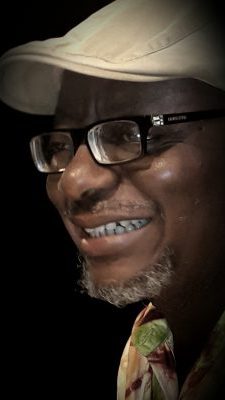By Olayinka Oyegbile
Reading maketh a full man; conference a ready man; and writing an exact man – Francis Bacon
To the devoted readers of this column on another forum a while ago, I wish to profusely apologise for the sudden disappearance or stoppage of the column without notice. Life goes on like that and some things happen that puts things out of synch. Many readers, respected, known and unknown to me beyond the pages of newspapers, have got across to me asking why I “off my mic”, to use the current popular jingo, without giving a notice. I am so humbled by a man who says he resides somewhere in Benue State. He sent me series of text messages asking why. On a particular day, he sent me series of text messages saying I should let him know well ahead any week I am not going to write so that he’ll, in his words, “not waste” his money to buy the newspaper again. I had to apologise profusely and let him know that the column had been on a hiatus, and had like a ram which takes backsteps in a duel, taken the French leave to gather more strength and force.
I will also wish to acknowledge calls and messages from respected Prof Olabode Lucas, eminent retired professor of crop physiology and nutrition, who wanted to find out what was amiss. Prof, thanks for your enquiries; the column is back on another forum.
For the benefit of those who might be encountering it for the first time here, the issues that would engage our attention are strictly books, literature and all issues of material culture. As long as it has to do with books and literature or anything that has to do with arts; we are game. But let no one think politics is not of concern to us. It is, but perhaps in a different way or temper.
This is because the world is ruled by politics. If you say you will not deal with politics you are deceiving yourself. The decisions made by politicians affect the book you read and your literature. So, there is no way politics would not feature in our day to day lives. Politics determine the nuances, colours and tone of our literature, music, arts, and what not. It is therefore important to stress that we are not going to be blind to politics in that sense. The politics you ignore is what determines the book you can afford to buy or find time to read. It is in this vein that we are not going to shy away from politics of books. Who is writing what or who is reading what are all what we are going to get concerned about.
It is perhaps not a coincidence that this column is returning a few weeks after one of our country’s greatest poet and playwright transited to the great beyond. Who among my generation has not heard or read about J.P. Clark who died on October 13?
I can still remember that my first encounter with his works was in the secondary school. His poems touched our hearts and they were about things we were familiar with. Poems about Rain, Abiku, cattle egrets, and the iconic Ibadan poem. All these were surprising to us. We asked ourselves a JP Clark would write so intimately about our experiences? Where did he gain the experience and how can he write with such native knowledge and candour? At that time, we may not have verbalized it in such elevated manner, but we were lost to understand how he could have understood us so much. Our literature teacher did not also help matters at the initial stage because he just delved into teaching us the poetry without bothering to give us some background knowledge of the poet. He must have assumed that since the poems were taken from an anthology of African poetry, we should know the poet!
We followed him sheepishly and those of us who were usually vocal in the class were tongue tied. It was after the class that one of us was bold to ask “Who is this JP Clark?”. Of course, that was behind the teacher. We were not bold enough to ask him. This was long before the age of Google or internet. We were not digital natives. Where then do we find the information about this Clark? This got us curious and his most memorable poem Ibadan, short and easy to remember turned many of us to imitation and emergency poets! I still remember many of my classmates then began to write poems about the cities they came from. I remember I wrote one about Jos, another wrote about Minna, Kaduna, Zaria, Fuga, Warri and other such cities. We saw ourselves as poets in the making and tried to capture the essence of the cities from where we all came because we read JP Clark. Such was his magic and example.
He has already taken his raft and journeyed home. But his memories and influence still loom large today in the lives of many of my mates who never met him in person, but have been influenced by him. Such is the power of the written word.
No tribute can however be greater to JP than that by the equally eminent playwright and poet Prof Femi Osofisan, who wrote his biography titled JP Clark: A Voyage. It is without doubt the best eulogy and tribute for any writer in this part of the world.
It is on this note that I welcome you to this space where we are going to continue to deliberate on issues of life and what touches and make us what we are today. Books and literature are the tonic of life. Any living being who does not read or know how to read has only a life, but a reader lives in many worlds and is a bank of knowledge.
Welcome.


